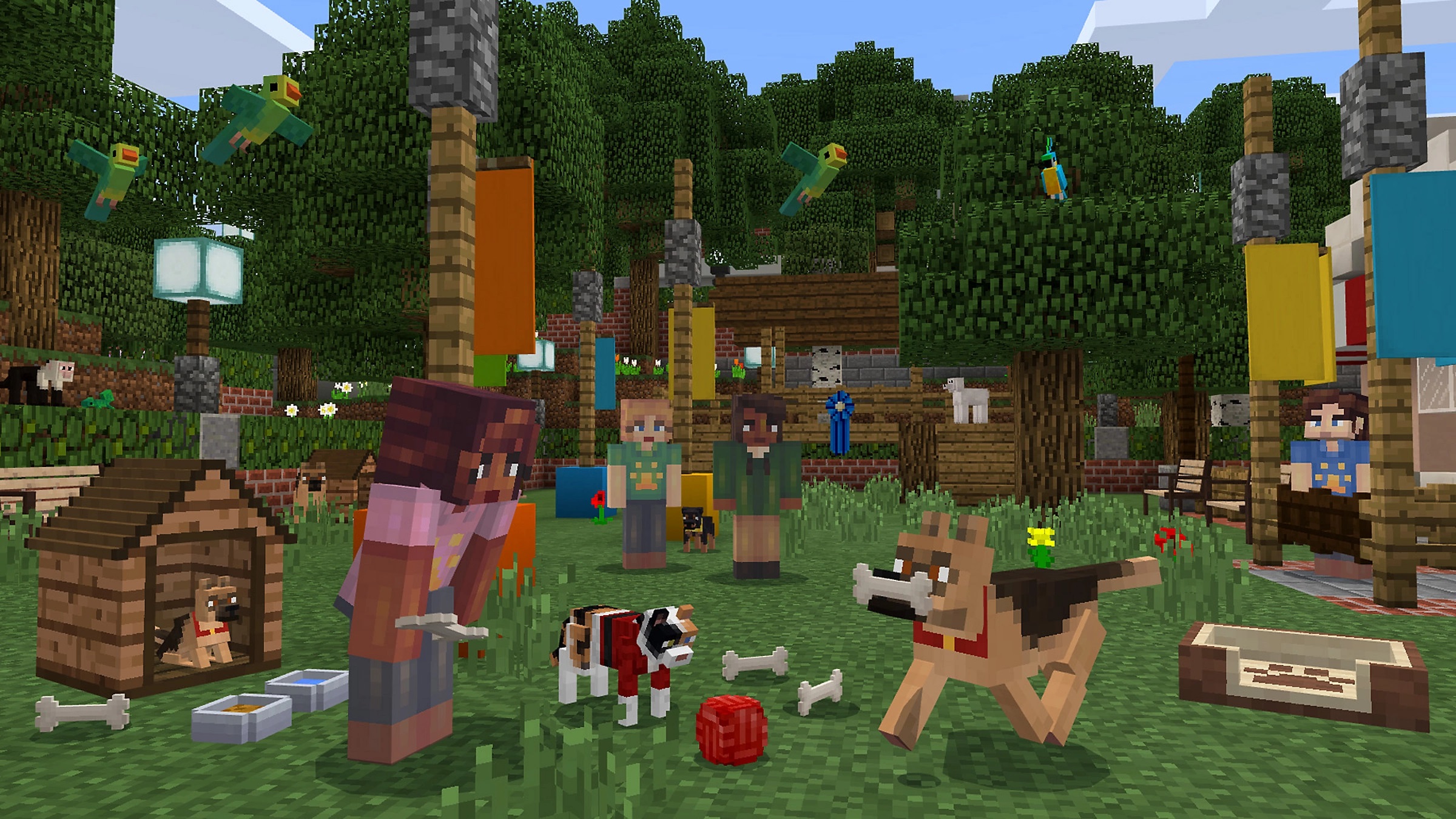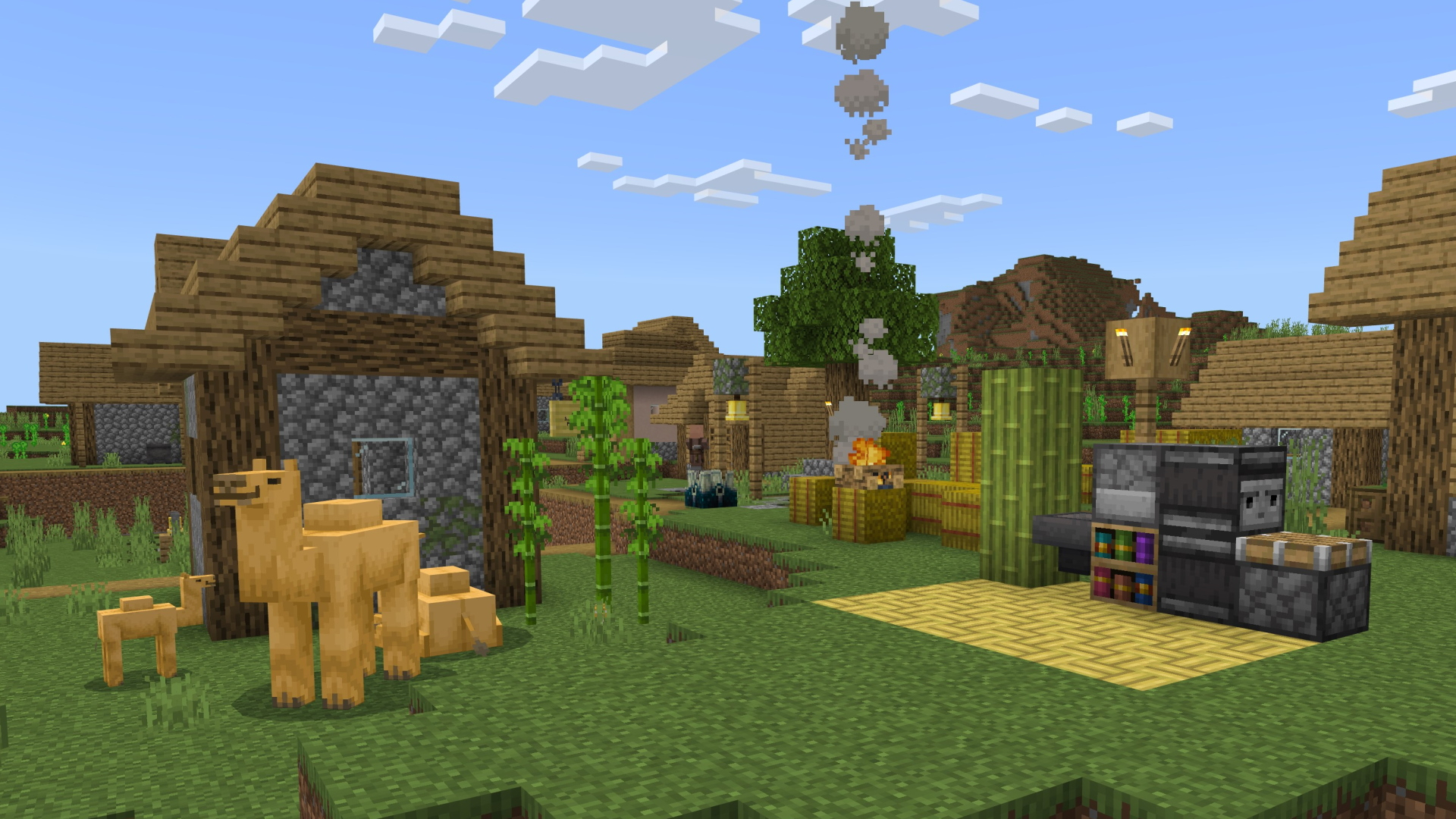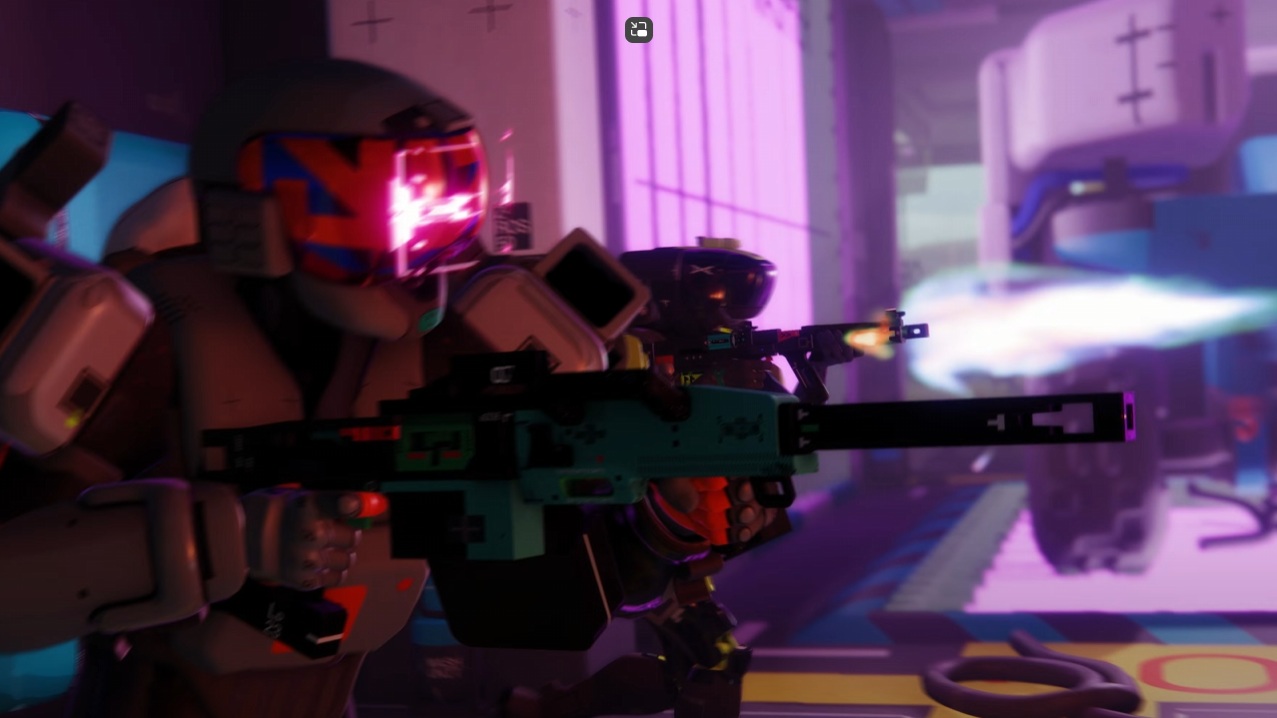Did Microsoft scare the media into not covering Minecraft's 'The End' copyright drama?
Press X to doubt.

Before it's most recent acquisition spree, Microsoft's biggest video game acquisition of yesteryear was Mojang, and with it, Minecraft, one of the world's biggest game franchises.
Microsoft paid a cool $2 billion dollars for Minecraft, and with it, the rights to create more games and ultimately determine the blocky craft 'em up's destiny. Minecraft has since grown into a global phenomenon, hitting the top of most app store charts and taking pole positions consistently on streaming platforms like Twitch and YouTube. It has spawned several spin-offs and is supposedly getting its own movie. Minecraft remains one of Xbox's best games and is arguably its most important franchise. There was one aspect of the game that Microsoft's hundreds of acquisition lawyers seemingly missed, however.
Julian Gough recently took to Twitter to describe an interesting interaction between himself and a media outlet covering his story. You see, Gough is a poet and musician who was invited by former Mojang head Notch to pen a freeform poem for the game's ending. "The End" poem is a famous part of the game, which plays out in the credits after defeating the Ender Dragon. Gough, however, never actually signed any form of contract conferring ownership of the poem to Mojang, and refused to sign contracts subsequently presented by Microsoft. Gough wrote up his experiences in a Substack article a little while ago, before opting to set The End poem free under a creative commons license, effectively making it accessible in the public domain.

Gough claims that his story was set to feature in a "major media" organization and that their own lawyers had confirmed all the legalities regarding the poem's copyright status. Gough, however, alleges that Microsoft's silence on the matter spooked said media organization from publicizing the situation.
In any case, it would seem that Minecraft's ending poem "The End" is now available in the public domain, and can be adapted, printed, and publicized in any way people see fit.
I know that journalists at several national newspapers have, by now, asked Microsoft for comment, and they have been blanked too. If you are a trillion dollar corporation, this strategy works. You can intimidate the mainstream media, without triggering the Streisand effect.January 5, 2023
I'm not sure I buy Gough's claims that major media organizations would "lose their nerve" by Microsoft's lack of response. As someone who has been covering Microsoft exclusively and professionally for the past 7 years, I've never once felt any type of "pressure" Gough ascribes to Microsoft here. We have leaked things that are likely to (and likely do) piss off Microsoft a thousand times more than covering this particular topic. Gough alleges that this all stemmed purely from Microsoft's radio silence when asked for comments, which is something that just seems so utterly unlikely to me. As such, I have reached out to Microsoft to comment on this story, and will be sure to update you if I hear back.
Still, it is quite an interesting situation and something that seems to pop up from time to time with regard to copyright. Microsoft has been very public about the limitations copyright has played in its development of the Xbox 360 and original Xbox backward compatibility program, and I've written speculation before about the strange status of the MechAssault and BattleTech franchises, which lays dormant due to legal apocrypha that may never fully come to light.
Get the Windows Central Newsletter
All the latest news, reviews, and guides for Windows and Xbox diehards.

Jez Corden is the Executive Editor at Windows Central, focusing primarily on all things Xbox and gaming. Jez is known for breaking exclusive news and analysis as relates to the Microsoft ecosystem while being powered by tea. Follow on Twitter (X) and Threads, and listen to his XB2 Podcast, all about, you guessed it, Xbox!
